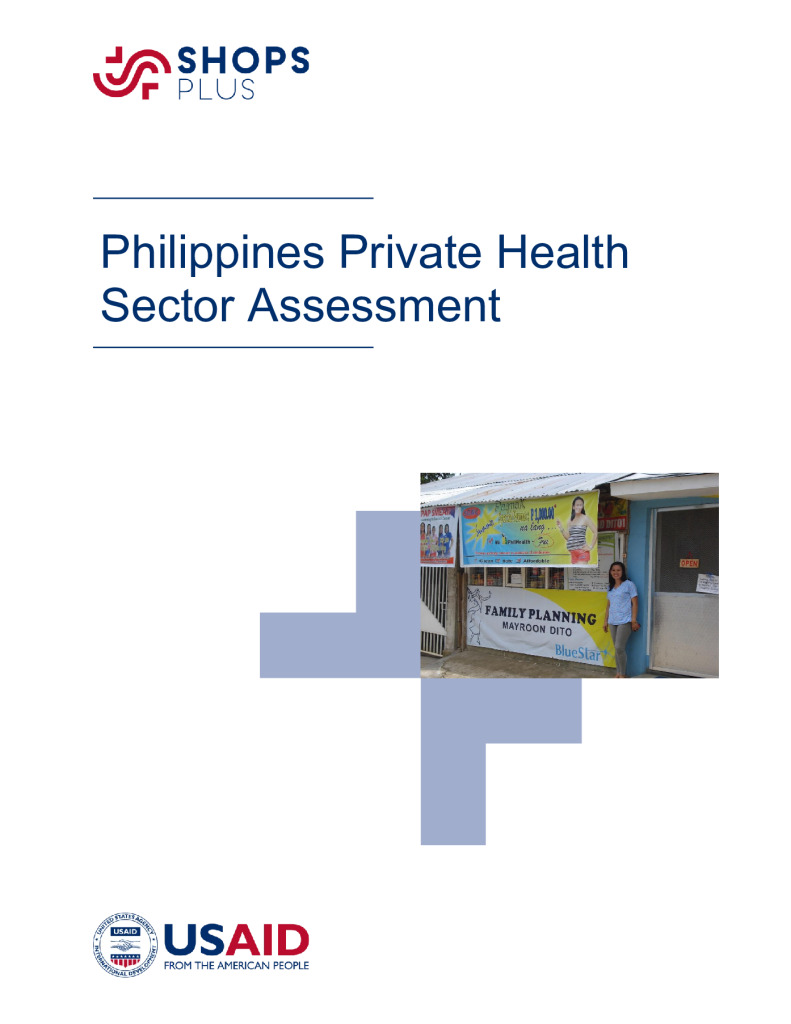
Resources
Philippines Private Health Sector Assessment
Publications
Previous

FP2020 Integrating Family Planning and HIV
Next

Contraceptive supplies financing: what role for do...
Topics:
Service Delivery & Quality
Partners:
PhilippinesThe Republic of the Philippines is home to approximately 104.9 million people in Southeast Asia. A strong history of economic growth throughout the 2010s has resulted in a declining poverty rates across the country, with some regional variation. The Philippines is also home to the youngest working age population in East Asia, which is fueling the growth of the business process outsourcing (BPO) sector. At the same time, health outcomes are similarly improving in the Philippines. Substantial increases in government funding, investments in facilities and human resources for health, and investments in the national health insurance program PhilHealth have all helped more Filipinos access the health care that they need.
Despite remarkable progress, challenges remain in reproductive health. The landmark Responsible Parenthood and Reproductive Health law, passed in 2012, provides a legal guarantee for all women to access family planning (FP) and reproductive health information and services. However, fertility is high for the region at 2.9 children per woman, and modern FP use is low (25 percent of all women use modern contraception). The Philippines also faces a teen pregnancy problem, with high rates of teen pregnancy compared to its neighbors. These trends come in spite of significant investments by donors and the Philippines government and contribute to slow progress at improving maternal health outcomes. Many factors contribute to the low uptake of FP services. One main barrier is opposition from the Catholic Church, which exhibits a great amount of influence in the Philippines and only supports natural FP methods. This opposition helped delay passage of the 2012 Reproductive Health law for 13 years and has led to the greatest current challenge to accessing FP services: temporary restraining orders issued by the Supreme Court that have prevented the full implementation of the 2012 Reproductive Health Law and created confusion about what is and is not allowed regarding the procurement, distribution and provision of contraceptives in both the public and private sectors.
The USAID-funded Sustaining Health Outcomes through the Private Sector (SHOPS Plus) project conducted this assessment to identify opportunities and provide recommendations for USAID/Philippines to support increased delivery of modern FP services, especially for Filipino youth and adolescents, through the private sector.









